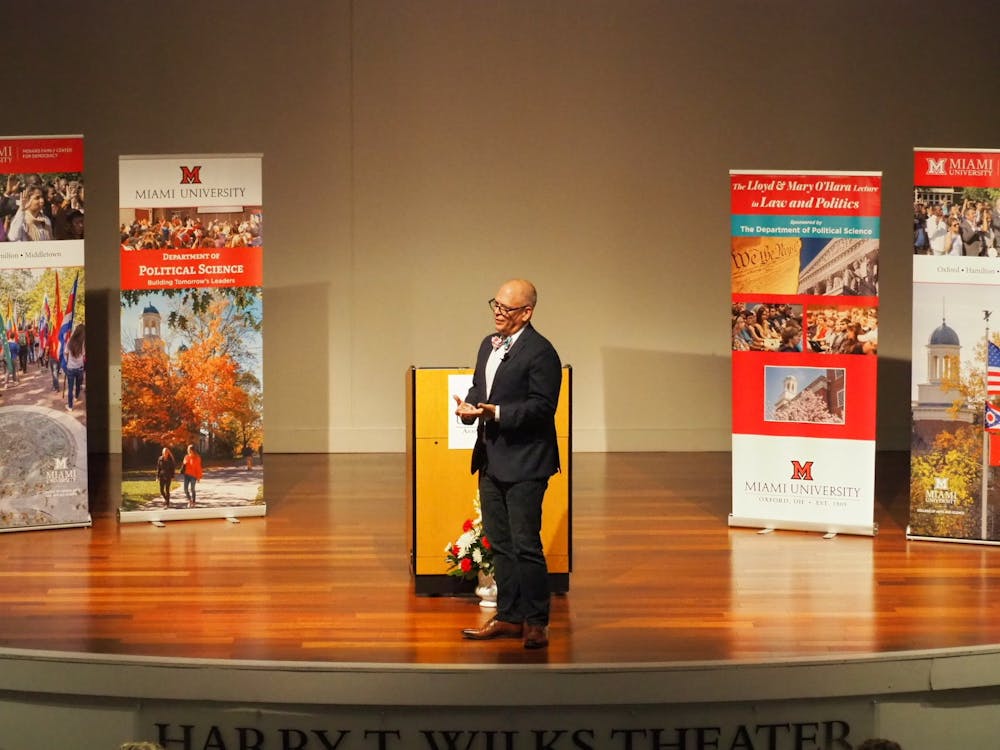Jim Obergefell, plaintiff in the landmark Supreme Court case legalizing gay marriage Obergefell v. Hodges, spoke to Miami University students on Sept. 14 for the annual Lloyd and Mary O’Hara Lecture in Law and Politics.
Obergefell, a graduate of University of Cincinnati, recounted his relationship with his partner, John Arthur, and the couple’s desire to get married in 2013 after Arthur was diagnosed with ALS 18 years into their relationship. ALS is a terminal disease that weakens the muscle system and reduces functionality.
But same sex marriage was not yet legal in Ohio.
The couple traveled to Maryland and were married in Baltimore Washington International airport.
Shortly after their marriage, Al Gerhardstein, a local civil rights attorney, informed the two that the state of Ohio would not list Obergefell as Arthur’s surviving spouse on his death certificate despite their legal marriage in the state of Maryland.
In response, Obergefell and Arthur filed a lawsuit against the state of Ohio and city of Cincinnati to legally recognize their marriage.
Three months before Arthur’s death, Judge Tim Black ruled in favor of Obergefell and Arthur. The state of Ohio, however, later appealed the decision, sending the case to the Sixth Circuit Court of Appeals.
The Sixth Circuit Court of Appeals overturned Black’s decision in August 2014. Obergefell petitioned the Supreme Court to settle the case.
A self-described “accidental activist,” Obergefell was unexpectedly thrust into the legal world but willingly stepped into the high profile role as plaintiff in the Supreme Court case.
“There’s no way I can allow myself to say, ‘I’m kind of done with this, I'm going back to my quiet life.’” Obergefell said. “Because if I did that, I was not living up to my promises to John, and I wasn’t going to do that.”
On June 26, 2015, the Supreme Court sided with Obergefell in a landmark 5-4 decision, effectively requiring all 50 states to recognize same sex marriage.
“That’s my story, and I just always come back to it’s a story of love and loss,” Obergefell said, “and everything I did was because of love. I love my husband, and we deserve to exist.”
Enjoy what you're reading?
Signup for our newsletter
Junior political science major Allison Sifri was surprised at how someone so monumental in the legal security of LGBTQ+ rights could be so humble.
“He changed America in such a drastic way, and yet he was so easy to talk to and felt very personable,” Sifri said.
Kerrigan Graybow, a junior business economics major, expressed his excitement over the lecture and the sense of hope Obergefell v. Hodges has provided for the LGBTQ+ community.
“Cases like these make me excited to pay attention and be involved,” Graybow said. “It’s a landmark that feels important. Even if we’re not done, it’s still steps forward.”




